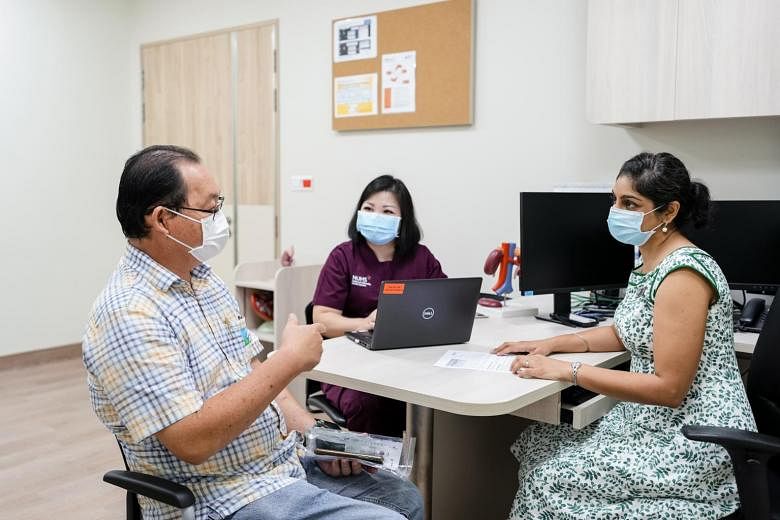SINGAPORE - Since 2014, undergoing four-hour dialysis treatments three times a week had become a routine for Mr Law Leh Ping.
But the 50-year-old technician no longer needs to go for dialysis after undergoing a simultaneous pancreas-kidney (SPK) transplant in April 2019. He is the first person in Singapore with Type 2 diabetes to go for such an operation.
Mr Law, who was diagnosed with Type 2 diabetes in his 20s, required insulin injections in his 40s when his blood glucose level could not be controlled.
Significant kidney function deterioration later meant he needed dialysis.
"It took up a lot of time, because I had to leave work early three times a week and rush for my dialysis at the NKF Dialysis Centre in Bukit Batok 30 minutes away."
He added: "This meant that I also could not travel overseas for long periods of time. At most, I could take a day trip to Malaysia."
Diabetes is a condition where there is too much sugar in the blood, which is damaging to the body and can lead to heart disease, kidney damage and even blindness.
Type 1 diabetes is genetic and unpreventable. It occurs because the pancreas naturally does not produce enough insulin, a hormone that controls blood glucose levels.
Type 2 is the most common form of diabetes where the body is unable to use insulin properly. Its most common cause is obesity and an inactive lifestyle.
Mr Law's transplant was one of four SPK operations successfully done in a pilot pancreas transplant service started in 2012, as a collaboration between the transplant units of National University Hospital and Singapore General Hospital.
The pancreas transplant service was approved as a national programme by the Ministry of Health in April.
His doctor, Dr Hersharan Kaur Sran, said: "Although most people on the wait-list have Type 2 diabetes, many of them are not eligible for the simultaneous pancreas-kidney transplant because they do not fit the criteria, which is that they must be on insulin and not overweight.
"Some of them may also have other medical conditions which makes them unfit for the transplant."
Dr Hersharan, senior consultant at the National University Centre for Organ Transplantation, said Mr Law was deemed suitable for the SPK transplant as he was on insulin and his weight was stable.
Two years on, Mr Law said he feels privileged to be given a new lease of life.
"The transplant was a rare opportunity. When I had to undergo frequent dialysis treatments, my children were really worried about me. Now, it feels like I was given a new life," he told The Straits Times.
"I'm so grateful, and I hope the national programme can help more dialysis patients like me lead a normal life."


